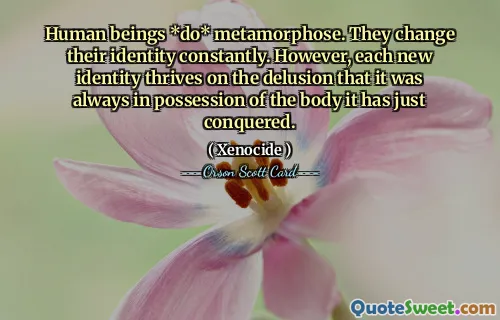Most of the time it's not the Europeans who belittle us. What happens when we look at them is that we belittle ourselves. When we undertake the pilgrimage, it's not just to escape the tyranny at home but also to reach to the depths of our souls. The day arrives when the guilty must return to save those who could not find the courage to leave.
The quote reflects on the internal struggle of individuals from certain cultures as they navigate their feelings towards European perceptions. Rather than Europeans belittling them, it suggests that self-deprecation arises from within, highlighting the importance of self-worth and cultural pride in the face of external judgments. The pilgrimage mentioned symbolizes a journey of self-discovery, where one seeks to confront their inner turmoil and complexities.
Furthermore, the quote emphasizes the responsibility of those who have left their oppressive environments. The notion that they must return to assist those who cannot escape indicates a deep sense of accountability towards their community. This depicts a cycle of courage and sacrifice, suggesting that true liberation involves not just personal escape but also aiding others in their struggles.





